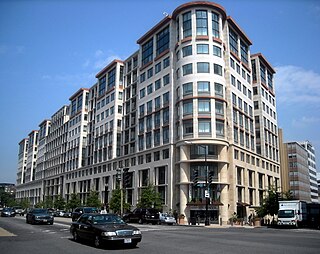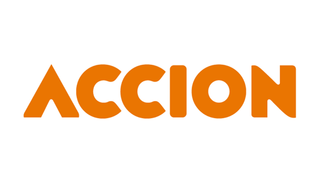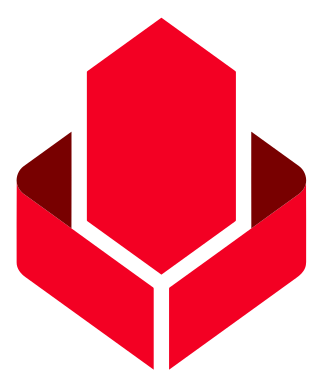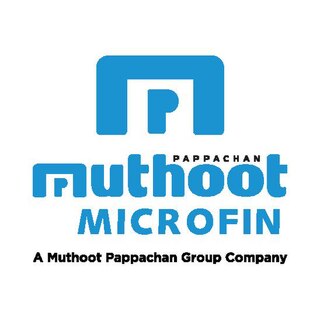
The European Investment Fund (EIF), established in 1994, is a financial institution for the provision of finance to SMEs, headquartered in Luxembourg. It is part of the European Investment Bank Group.

The International Finance Corporation (IFC) is an international financial institution that offers investment, advisory, and asset-management services to encourage private-sector development in less developed countries. The IFC is a member of the World Bank Group and is headquartered in Washington, D.C. in the United States.
Seed money, sometimes known as seed funding or seed capital, is a form of securities offering in which an investor invests capital in a startup company in exchange for an equity stake or convertible note stake in the company. The term seed suggests that this is a very early investment, meant to support the business until it can generate cash of its own, or until it is ready for further investments. Seed money options include friends and family funding, seed venture capital funds, angel funding, and crowdfunding.

Accion is an international nonprofit. Founded as a community development initiative serving the poor in Venezuela, Accion is known as a pioneer in the fields of microfinance and fintech impact investing.
Social venture capital is a form of investment funding that is usually funded by a group of social venture capitalists or an impact investor to provide seed-funding investment, usually in a for-profit social enterprise, in return to achieve an outsized gain in financial return while delivering social impact to the world. There are various organizations, such as Venture Philanthropy (VP) companies and nonprofit organizations, that deploy a simple venture capital strategy model to fund nonprofit events, social enterprises, or activities that deliver a high social impact or a strong social causes for their existence. There are also regionally focused organizations that target a specific region of the world, to help build and support the local community in a social cause.
A micro-enterprise is generally defined as a small business employing nine people or fewer, and having a balance sheet or turnover less than a certain amount. The terms microenterprise and microbusiness have the same meaning, though traditionally when referring to a small business financed by microcredit the term microenterprise is often used. Similarly, when referring to a small, usually legal business that is not financed by microcredit, the term microbusiness is often used. Internationally, most microenterprises are family businesses employing one or two persons. Most microenterprise owners are primarily interested in earning a living to support themselves and their families. They only grow the business when something in their lives changes and they need to generate a larger income. According to information found on the Census.gov website, microenterprises make up 95% of the 28 million US companies tracked by the census.

The U.S. African Development Foundation (USADF) is an independent U.S. government agency established by Congress in 1980 to invest directly in African grassroots enterprises and social entrepreneurs. USADF's investments aim to increase incomes, revenues, and jobs by promoting self-reliance and market-based solutions to poverty. USADF targets marginalized populations and underserved communities in the Sahel, Great Lakes, and the Horn of Africa. It partners with African governments, other U.S. government agencies, private corporations, and foundations to achieve transformative results.

Vikram Akula is an American banker and the founder of SKS Microfinance, a micro finance company and former chairperson of Bharat Financial Inclusion Ltd. SKS was an organization that offered microloans and insurance to poor women in India. He stepped down as SKS Chairperson in November 2011 and became Chairperson Emeritus.
Aga Khan Agency for Microfinance (AKAM) is a microfinancing agency of the Aga Khan Development Network.
SME finance is the funding of small and medium-sized enterprises, and represents a major function of the general business finance market – in which capital for different types of firms are supplied, acquired, and costed or priced. Capital is supplied through the business finance market in the form of bank loans and overdrafts; leasing and hire-purchase arrangements; equity/corporate bond issues; venture capital or private equity; asset-based finance such as factoring and invoice discounting, and government funding in the form of grants or loans.
Enterprise Capital Funds are financial schemes established by the Department for Business, Innovation and Skills (BIS) in the United Kingdom to address a market weakness in the provision of equity finance to UK small and medium enterprises (SMEs). Government funding is used alongside private sector funds to establish funds that operate within the "equity gap"; targeting investments of up to £5 million that have the potential to provide a good commercial return. The first five funds supported under the scheme were launched in 2006-7 following a pathfinder competition. A further three funds were awarded ECF status in 2007. As of November 2019, 29 ECFs have been launched.
Wizzit is a provider of basic banking services for the unbanked and underbanked in South Africa. Its services are based on the use of mobile phones for accessing bank accounts and conducting transactions, in addition to a Maestro debit card that is issued to all customers upon registration. Wizzit is a branchless banking business, meaning that its services are designed so that customers can generally conduct transactions without the need to visit bank branches.
Impact investing refers to investments "made into companies, organizations, and funds with the intention to generate a measurable, beneficial social or environmental impact alongside a financial return". At its core, impact investing is about an alignment of an investor's beliefs and values with the allocation of capital to address social and/or environmental issues.
SEAF is an international investment management group that provides growth capital and business assistance to small and medium enterprises (SMEs) in emerging and transition markets underserved by traditional sources of capital.

Yoma Bank Limited is one of Myanmar's largest commercial banks. As ‘the Responsible Bank’ for 30 years, Yoma Bank has been the fastest developing private bank in Myanmar. By strategically investing in our people, technology and governance, Yoma Bank has developed a trusted reputation within the community, which has been an essential part of establishing local and international partnerships to progressively move forward. The bank has 81 branches across Myanmar.
Harold Rosen is executive director of the Grassroots Business Fund. Rosen holds Bachelor's and master's degrees in Regional Science from the University of Pennsylvania, and an MBA from Harvard Business School.
Mobile Transactions Zambia Ltd (MT) is an enterprise launched in 2009 that aims to give its customers access to various financial services using mobile technology and a country-wide network of agents.

Bank of Industry Limited is Nigeria's oldest and largest Development Finance Institution (DFI) currently operating. It is owned by the Ministry of Finance Incorporated (MOFI) Nigeria (94.80%), the Central Bank of Nigeria (CBN) (5.19%) and private shareholders (0.01%). The bank has 11 members on its board and is chaired by Aliyu Abdulrahman Dikko.

Muthoot Microfin Limited is a microfinance institution (MFI) in India. Headquartered in Kochi, it is the microfinance subsidiary of Muthoot Pappachan Group.








